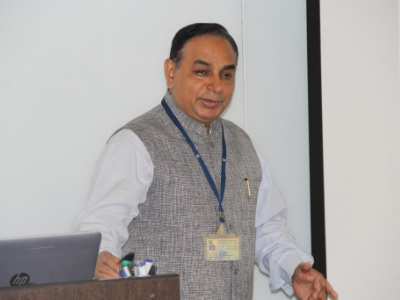Listen to this article
V S Sundaresan, Executive Director, SEBI said that Indian market has been receiving strong support from MF investors. He was speaking at the ASSOCHAM’s (The Associated Chambers of Commerce and Industry of India) 14th Capital Market Summit - The re-set of globalisation: Capital Formation @ 2047 New India in Mumbai.
Sunderesan said that earlier, FPIs completely drove market movements. However, the market now has the strong support of non-FPI participants i.e. indirect participation of mutual fund investors/others and direct participation of institutional investors.
This clearly shows the progress in capital formation and channelization of savings in the capital market. It is essential to ensure this participation increases further in terms of investor count as well as investment amount.
Sunderasan; however, pointed out concentration of assets of mutual funds in metro cities. He said that only a handful of cities - Mumbai, Delhi, Bengaluru, Chennai and Kolkata contribute over 50% to the total AUM. It is hence important to reach out and encourage participation from other cities, he urged the MF industry.
Leveraging on strengths
The existence of a strong regulator (SEBI), corporate governance and robust legal framework are key market strengths.
The regulator has introduced various reforms including the recent change to the ‘T+1’ settlement cycle. Notably, India is the first nation to implement this and thus stays at the forefront of making reforms.
Also, as against other markets, the Indian market is stable with comparatively low volatility. It has matured and the participants do not usually react to small and insignificant events. A stable and sustainable market like this with sophisticated technology makes it more resilient.
Dealing with flaws
While retail participation is on the rise, there is a lack of investor awareness making it difficult for them to know which product is right for them. It is important to educate and guide investors to make informed decisions by bridging the gap between the needed and actual skill-set.
Also, the number of regulator amendments is on the rise. Such regulatory overreach increases the cost of compliance and also poses one of the weaknesses. To tackle this, every market participant should take the onus to strengthen corporate governance to curb non-compliances.







